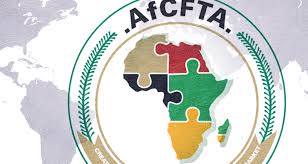AfCFTA implementation: Advocacy for support to local businesses yielding results
- Advertisement -
Efforts to court the government’s support to local businesses so they can compete favourably under the African Continental Free Trade Area (AfCFTA) by business and trade groups and some economists is yielding result as the Ghana Investment Promotion Centre (GIPC) is ready to intervene.
The GIPC, last week, assured local businesses that the Centre is ready to assist them to harness the opportunities that come with trading to help empower the private sector to become a hub for economic growth in Africa through the AfCFTA.
- Advertisement -
The GIPC serves as the intermediary between the private sector and the government; hence, it’s willingness to create a more conducive business environment for local businesses to thrive under the AfCFTA.
- Advertisement -
“It’s without a doubt that at the high ends of the trade value chain, there is value addition and industrialization, so we are not going to export our raw materials and resources as we did before. We are going to add value to them”, the Chief Executive Officer of GIPC, Mr. Yofi Grant assured in an interview. “And in that sense, we would require some amount of investment to make that happen because investment is not only into the companies. It is also about the factories themselves because if you want to be a trade partner, you must be trading some goods and services. You must build the capacity for it.”
Read More: Haruna Maiga writes: Nasara deserves better…
“There’s also training as all these forms the composite for what is required to make it happen in a very structured way. Looking for investors who are particularly keen on that. But we are now selling a much more aggressive story of actually coming to produce in Africa, and helping our indigenes to also scale up. For example, in the textiles industry, we have spoken to quite a number of significant world players to actually come and set up shop in Ghana and then take advantage of that export to the continent. We have also discussed with some of our European partners to actually come establish the factories here. At the GIPC, we are actually increasing capacity for better trade investment facilitation which would then percolate towards the trade infrastructure,” he added.
Recently, the Ghana National Chamber of Commerce and Industry, Association of Ghana Industries, Ghana Union of Traders Association and some economists have called on the government to immediately institute stimulus package to support Ghanaian business to take advantage of the free trade agreement so as to expand to create more jobs and grow the economy.
Latest to add his voice is an economist Dr Adu Owusu Sarkodie who believes that, for Ghana to be able to take full advantage of the Agreement, ease of doing business in the country has to be significantly improved.
He indicated that, easing business processes like tax filing, business registration and the likes will better position the country to benefit significantly from the African Continental Free Trade Area agreement.
Dr Sarkodie emphasized that if those bottlenecks are addressed, the Ghanaian economy will experience significant growth soon.
“If you look at the doing business report, there are the issues of credit, electricity infrastructure, how cumbersome the registration process for a company or property, filing taxes and paying returns. All these things will make the economy competitive. So if Ghana can position itself well by addressing some of these things that I have talked about, access to credit, infrastructure development, tax filling, payment and corporate taxes, ease of registering companies, etc, if Ghana can improve on all these things that I’ve mentioned, it will position us better to reap maximum benefits from the African Continental Free Trade Area which is good.”
- Advertisement -
A World Bank report indicated that the ease of doing business in Ghana deteriorated marginally in 2020 compared to the previous year.
The World Bank in its Ease of Doing Business Report ranked Ghana at 118, representing a drop in four places in the previous year report.
The Ease of Doing Business report which measures businesses’ competitiveness in 190 countries attributes Ghana’s drop to the government’s decision to convert GETFund and NHIL levies to straight taxes.
According to the World Bank, the conversion made paying taxes more complicated and more costly as they became a cost to businesses.
The World Bank Ease of Doing Business, which is a forward-looking report, in 2019 ranked Ghana at 114 with a score of 60.4 and in 2020, the country was ranked 118 with a score of 60.
The African Continental Free Trade Area (AfCFTA) is a free trade area founded in 2018, with trade commencing as of 1 January 2021. It was created by the African Continental Free Trade Agreement among 54 of the 55 African Union nations.
The free-trade area is the largest in the world in terms of the number of participating countries since the formation of the World Trade Organization. Accra, Ghana serves as the Secretariat of AfCFTA and was commissioned and handed over to the AU by the President of Ghana Nana Akufo-Addo on August 17, 2020, in Accra.
It consolidates a market of 1.2 billion people and a combined GDP of $2.5 trillion.
The agreement which commenced on January 1, 2021, has an estimated potential of boosting intra-Africa trades by over 50 per cent while eliminating import duties.
It also has an estimated potential of lifting 30 million Africans out of extreme poverty, boost Africa’s income by $450 billion by 2035 and also increase Africa’s exports by $560 billion.
By Adnan Adams Mohammed
- Advertisement -


